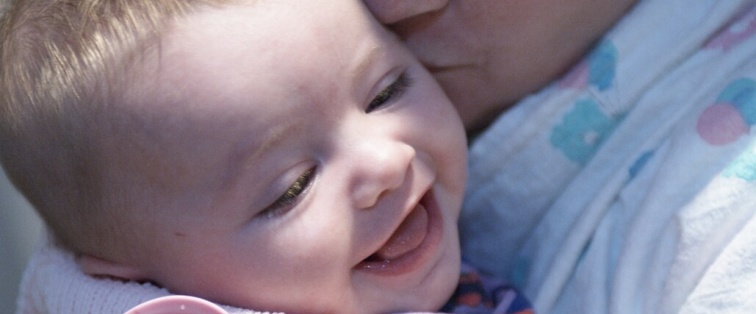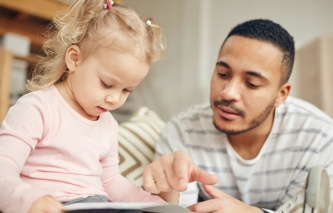Cocooning in Pediatrics: Protecting Kids from Pertussis by Protecting Parents

As primary care pediatricians, we know that once a baby is born, life becomes busy and hectic for many families. For families facing other barriers to health care - such as poverty and unemployment - pediatricians may be the parents’ only regular contact with a health care system. The health and well-being of children is deeply intertwined with the health of their parents and that is why there is a growing movement within pediatrics to provide care to parents while at the pediatricians’ office. Such intergenerational family services during pediatric appointments range from screening for maternal depression to providing nicotine replacement therapy to help parents quit smoking.
Another clinical scenario when we see parents’ health can greatly impact their child’s is pertussis - a highly contagious respiratory illness that causes mild symptoms in adults, but can be life threatening for infants. Almost half of all infants who contract pertussis require hospitalization, and of those hospitalized 1 in 100 die. Starting at two months old, infants can receive the first in a series of pertussis immunizations. But what can be done to help infants who have not yet been vaccinated from this deadly disease? The good news is there is a proven intergenerational strategy called cocooning, where caregivers of the infant receive the pertussis vaccine so they themselves will not get pertussis and unknowingly transmit the disease to their infants.
In 2014, with initial support from a Children’s Hospital of Philadelphia (CHOP) Cares grant and ongoing support from the Philadelphia Department of Public Health, we began an innovative intergenerational pilot program to offer caregivers the pertussis vaccine while they are at their infant’s first newborn visit. In our pilot work at the CHOP primary care site, Cobbs Creek, we found that those most interested in obtaining the vaccine at the newborn visit were fathers - mothers often receive the vaccine during pregnancy from their obstetricians - and those without their own primary care doctor; highlighting the importance of the pediatricians’ office as a point of access for intergenerational services. To date, we have vaccinated over 100 caregivers and work is well underway to spread this initiative to additional CHOP doctor’s offices.
Although this initiative has undoubtedly had important impacts for the families of Cobbs Creek, without a sustainable and scalable stream of funding, such efforts may fall to the wayside.
One possible solution is to allow reimbursement by the child’s health insurance for parental interventions at pediatricians’ offices that will ultimately benefit the child. Intergenerational reimbursement strategies have been implemented in several states that allow a child’s Medicaid coverage to reimburse pediatric providers for maternal depression screening completed during well-child visits. Such innovative reimbursement schemes have the potential to impact more children if they are expanded to other intergenerational family services, like pertussis cocooning. As pediatricians, these strategies help us better fulfill our ultimate goal of improving the health of children.
George Dalembert, MD, is a first-year fellow in the National Clinician Scholars Program at the University of Pennsylvania and a primary care pediatrician at CHOP, Cobbs Creek practice. Melissa Martin, MD, is an attending physician at CHOP, South Philadelphia practice.
